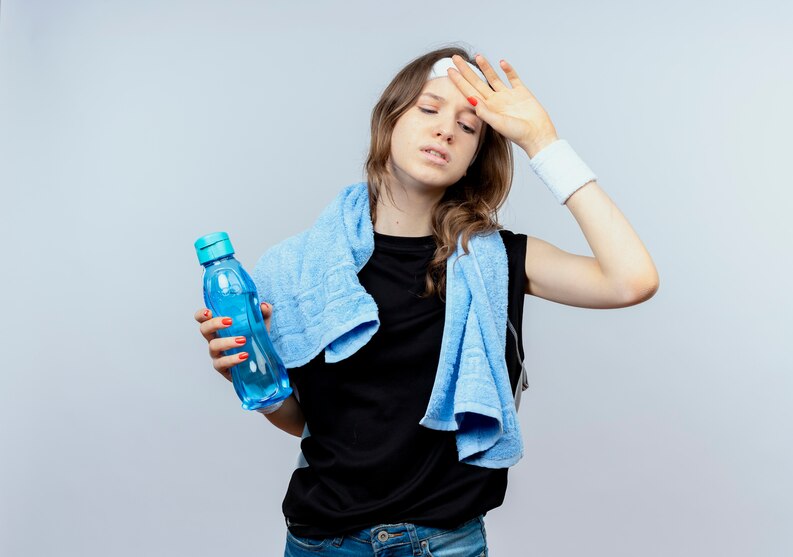Let’s talk about a topic that may not always be easy to discuss but is crucial for your sexual health: Chlamydia. This common sexually transmitted infection (STI) is more prevalent than you might think. So, let’s dive into the world of Chlamydia, break down the facts, and empower you with the knowledge you need.
Understanding Chlamydia: What’s It All About?

Chlamydia is caused by the bacterium Chlamydia trachomatis and is one of the most common STIs worldwide. Despite its prevalence, many people may not even know they have it, as it often doesn’t show noticeable symptoms. This makes regular STI testing an important part of sexual health care.
Symptoms of Chlamydia
- Painful urination
- Abnormal vaginal discharge (women)
- Discharge from the penis (men)
- Pain or discomfort in the lower abdomen
- Painful sexual intercourse
- Bleeding between periods (women)
- Testicular pain (men)
- Itching or irritation in the genital area

Home Remedies for Chlamydia
It’s important to note that Chlamydia is a bacterial infection that requires medical treatment with antibiotics for effective cure. While there are no DIY home remedies that can completely treat Chlamydia, you can focus on general self-care practices to support your overall health during and after treatment.

Here are some self-care tips:
- Hydration: Drink plenty of water to stay hydrated and support your immune system’s ability to fight off infections.
- Rest: Get adequate rest to allow your body to recover and heal.
- Healthy Diet: Consume a balanced diet rich in fruits, vegetables, whole grains, and lean proteins to support your immune system.
- Stress Management: Practice stress-reduction techniques such as deep breathing, meditation, or yoga to promote overall well-being.
- Avoid Alcohol and Tobacco: Limit alcohol consumption and avoid tobacco, as they can hinder the healing process.
- Personal Hygiene: Maintain good personal hygiene to prevent additional infections or complications.
- Abstain from Sexual Activity: During the treatment period, it’s recommended to avoid sexual activity to prevent spreading the infection to partners.
- Partner Notification: If you’re diagnosed with Chlamydia, inform your sexual partners so they can also seek testing and treatment.
- Follow Medical Advice: Follow your healthcare provider’s instructions for taking antibiotics and attending follow-up appointments.
- Preventive Measures: To prevent future Chlamydia infections, practice safe sex by using condoms and maintaining open communication with sexual partners.
Remember, while these self-care practices can support your overall well-being, professional medical treatment with antibiotics is necessary to effectively treat Chlamydia. Always consult a healthcare provider for proper diagnosis and treatment.
How to Deal With Chlamydia
1. Sneaky Symptom Thief: The Silent Nature of Chlamydia
Chlamydia is a stealthy infection, often lurking without any apparent symptoms. This is why it’s sometimes referred to as the “silent” STI. Without regular testing, individuals may unknowingly spread the infection to their partners.
2. Testing, Testing: The Importance of Regular Check-ups
Routine STI testing is crucial, especially if you’re sexually active or have multiple partners. Testing can detect Chlamydia early, allowing for timely treatment and preventing potential complications.
3. Who's at Risk? Understanding Vulnerabilities
While anyone can contract Chlamydia, certain factors can increase your risk. Young adults, those with multiple sexual partners, and individuals who engage in unprotected sex are more susceptible.
4. The Complication Conundrum: Potential Risks
If left untreated, Chlamydia can lead to various complications, such as pelvic inflammatory disease (PID) in women, which can result in fertility issues. In men, it can lead to epididymitis, causing testicular pain and swelling.
5. Treatment Tango: Addressing Chlamydia Head-On
The good news is that Chlamydia is treatable with antibiotics. Prompt treatment not only clears the infection but also reduces the risk of complications.
6. Partners in Prevention: Safe Sex and Open Conversations
Practicing safe sex, including consistent condom use, is a key part of preventing Chlamydia and other STIs. Open communication with sexual partners about testing and sexual health is equally important.
7. Education Empowerment: Arm Yourself with Knowledge
Educate yourself and others about Chlamydia. Understanding the facts, dispelling myths, and promoting regular testing can contribute to a healthier sexual community.
8. Regular Check-ins: Prioritizing Your Sexual Health
Make regular STI testing a part of your sexual health routine. Just as you visit the dentist or optometrist, prioritizing your sexual well-being with check-ups is essential.
9. No Shame, Just Support: Seeking Help When Needed
If you suspect you have Chlamydia or any other STI, don’t hesitate to seek medical advice. Healthcare professionals are there to provide guidance, answer your questions, and ensure your well-being.
10. Empowerment in Knowledge: Taking Control of Your Health
Armed with knowledge, you can take control of your sexual health journey. Stay informed, advocate for regular testing, and promote open conversations to create a safer and healthier environment for all.
Common Checkups and tests for Chlamydia

- Chlamydia Test: This test detects the presence of Chlamydia trachomatis bacteria in the body. It may involve a urine sample or a swab from the genital area.
- Sexually Transmitted Infection (STI) Screening: A comprehensive screening for various STIs, including Chlamydia, gonorrhea, syphilis, and HIV.
- Pelvic Exam: For women, a pelvic exam may be performed to check for any signs of infection or inflammation in the reproductive organs.
- Physical Examination: A general physical examination may be conducted to assess symptoms, such as genital discharge or discomfort.
- Blood Tests: In some cases, blood tests may be conducted to check for antibodies or to screen for other STIs.
- Partner Testing: If you test positive for Chlamydia, it’s recommended that your sexual partners also undergo testing to prevent reinfection.
Summary
While it’s natural to seek solutions at home, it’s essential to emphasize that Chlamydia requires professional medical attention. Home remedies and self-care can support your overall well-being, but they are not substitutes for proper diagnosis and treatment by a healthcare provider.
If you suspect you have Chlamydia or have been diagnosed, reach out to a medical professional promptly. Timely treatment with antibiotics prescribed by a doctor is the most effective way to cure Chlamydia and prevent potential complications. Your sexual health matters, and seeking proper care is the key to a healthier future.














Leave a Reply